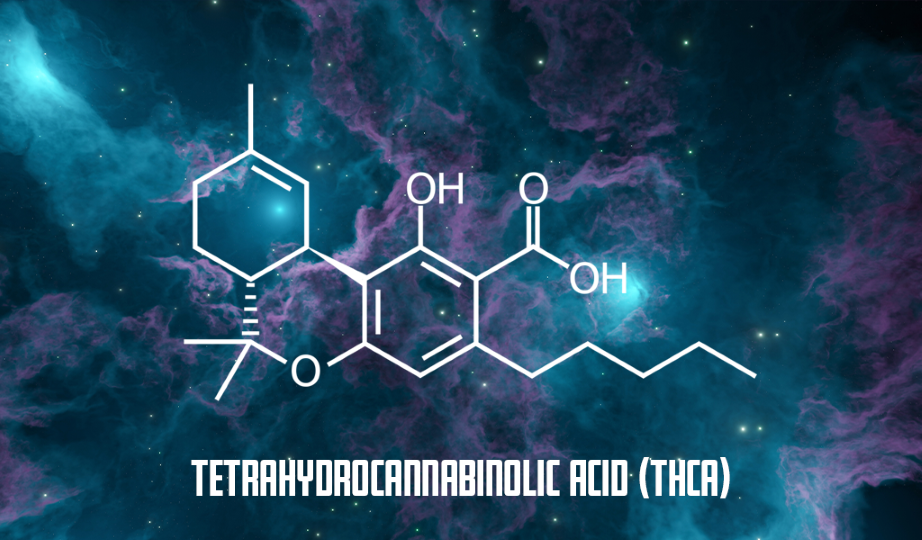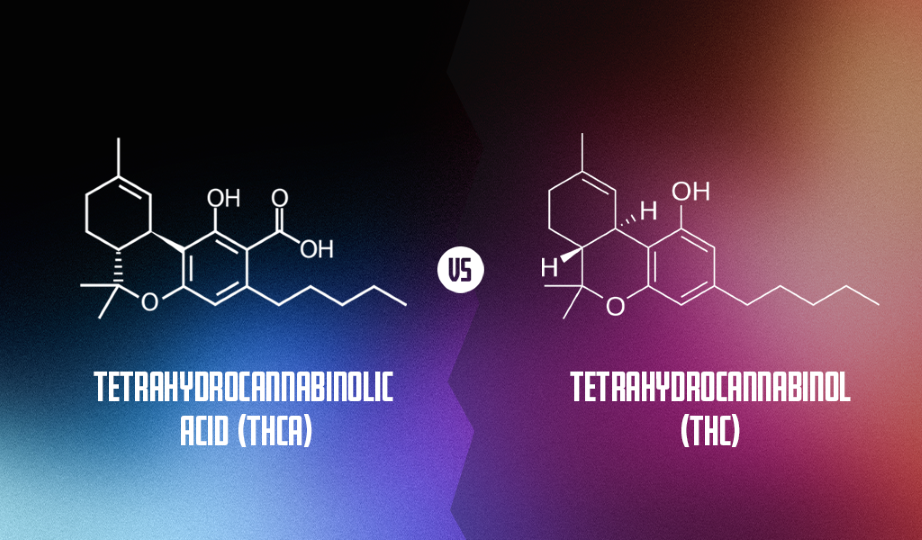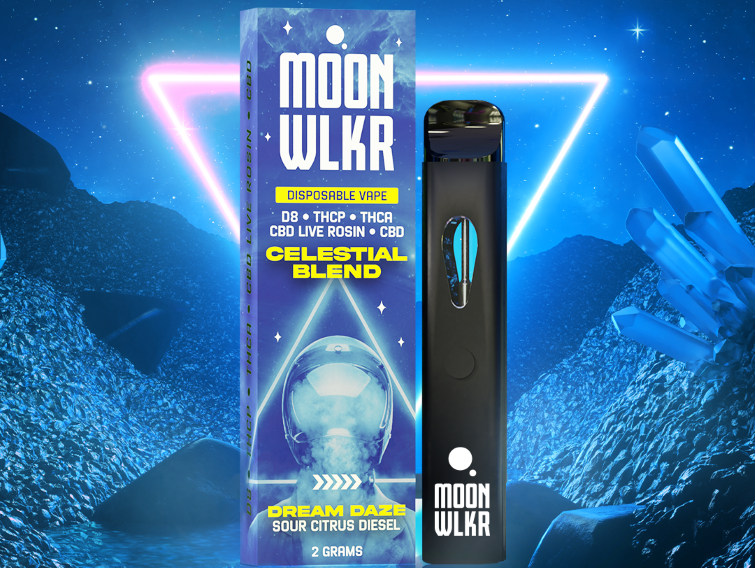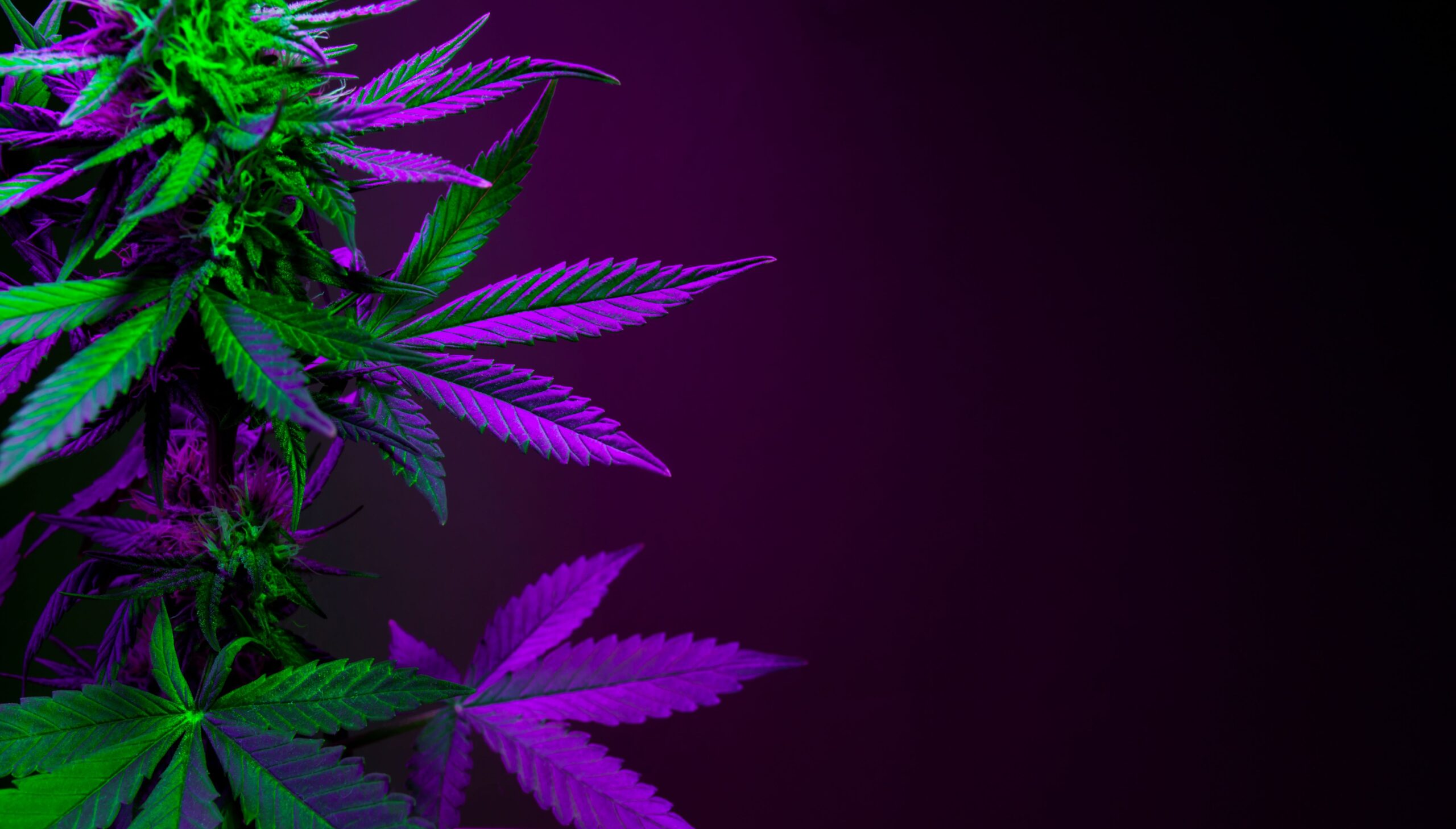When discussing cannabis compounds, THC (tetrahydrocannabinol) often takes center stage for its well-known psychoactive effects.
However, overshadowed by its more renowned relative is the less acclaimed THCA (tetrahydrocannabinolic acid).
While THCA shares a similar name with THC, its characteristics and properties are distinct, offering a fascinating exploration into the intricate world of cannabis chemistry.
THCA, found abundantly in the raw cannabis plant, is a precursor to THC, the cannabinoid responsible for the euphoric high associated with marijuana consumption. Unlike its infamous counterpart, THCA does not induce intoxication in its raw form, however can be heated to achieve said intoxication leading to intriguing possibilities for both recreational and medicinal use.
In this article, we embark on a journey to unravel the mysteries of THCA. From its natural occurrence in cannabis to its unique chemical properties, we’ll delve into the science behind this compound and explore potential health benefits.
Join us as we shine a spotlight on THCA, the lesser-known cannabinoid with a story waiting to be told.

What is THCA?
THCA, or tetrahydrocannabinolic acid, is a compound naturally present in the cannabis plant. It is the precursor to THC (tetrahydrocannabinol). In its raw and unheated form, THCA is non-intoxicating and does not produce the characteristic “high” associated with marijuana use. Instead, it is converted into THC through a process called decarboxylation, typically triggered by heat to then unlock similar effects of THC.
THCA is most abundant in the trichomes of the cannabis plant, which are tiny, hair-like structures found on the leaves and flowers. While concentrated in flowers, lower levels exist in other plant parts. In its raw form, cannabis contains substantial THCA, a precursor to THC. This compound undergoes decarboxylation, triggered by factors like heat, to become psychoactive THC.
Learn more about decarboxylation here!

What are the Benefits of THCA?
Research on THCA is ongoing, and while it is a less-studied cannabinoid compared to THC and CBD, some potential benefits have been suggested. It’s essential to note that more research is needed to fully understand the therapeutic effects of THCA. Here are some potential benefits based on existing studies and anecdotal evidence:
1. Anti-Inflammatory Properties
Some studies suggest that THCA may have anti-inflammatory properties, which could be beneficial for conditions involving inflammation, such as arthritis.
2. Neuroprotective Effects
There is some evidence to suggest that THCA may have neuroprotective properties, potentially providing benefits for conditions affecting the nervous system. This study shows potential in this area.
3. Antiemetic Effects
THCA has shown promise as an antiemetic, meaning it may help reduce nausea and vomiting. This could be particularly useful for individuals undergoing chemotherapy or experiencing nausea due to other medical conditions. Studies are ongoing and more research is needed, but there is evidence that cannabinoids can help against nausea.
4. Appetite Stimulation
Like THC, THCA may play a role in stimulating appetite. This could be beneficial for individuals dealing with conditions that lead to appetite loss, such as certain medical treatments or illnesses.
5. Analgesic (Pain-Relieving) Effects
Some users report that THCA may have analgesic effects, potentially helping to alleviate pain. This could be beneficial for individuals with chronic pain conditions.
6. Antispasmodic Effects
There is anecdotal evidence suggesting that THCA might have antispasmodic effects, which could be helpful for conditions involving muscle spasms, such as multiple sclerosis.
7. Potential for Anxiety Relief
While more research is needed, some users suggest that THCA may provide anxiety relief. It’s crucial to emphasize that individual responses to THCA can vary, and its effects may depend on factors such as dosage, individual tolerance, and the specific health condition being addressed.
Additionally, given the limited research, it’s advisable to consult with a healthcare professional before using THCA for therapeutic purposes.
For further information, check out this excellent article that goes further in depth on the benefits of THCA by Leafly.
Is THCA Legal?
The legal status of THCA varies by jurisdiction. As the precursor to THC, THCA may be subject to specific regulations in regions where cannabis is legal for medical or recreational use. Some areas differentiate between THC and THCA, allowing for certain uses.
However, in places where cannabis is illegal or tightly regulated, THCA may still be considered a controlled substance. Legal considerations depend on local laws and regulations, and it’s important to stay informed about specific guidelines in your jurisdiction.
On a federal level, THCA is permitted as long as the acceptable Delta-9 THC threshold of 0.3% is met. Various state laws may differ, and you should check your own specific state.

Dive further into the legality of all things THCA here!
Comparing THC and THCA
There are some key differences when comparing these two cannabinoids.
This biggest difference between THC and THCA is the chemical structure. THCA being the acidic precursor to THC requires the removal of an additional carboxyl group through a process called decarboxylation. Once THCA undergoes this process, it offers similar effects and benefits to it’s well-known counterpart THC including the activation of psychoactive properties. Beforehand, in its raw form, THCA is non-psychoactive.
THC is present in smaller amounts in the raw cannabis plant and increases significantly through decarboxylation or heating. As for THCA, it is abundant in fresh, raw cannabis, especially in trichomes on leaves and flowers. Is THCA flower safe? Find out here!
Both THC and THCA can offer promising benefits such as pain relief, nausea control, and recreational purposes. However, some studies suggest that THCA can also offer anti-inflammatory benefits as well!
THC and THCA are both also best consumed through smoking, vaporizing, cooking, or baking. Due to THCA’s need for the application of heat to unlock its psychoactive properties, unlike THC it does not offer the same intoxicating effects when consumed in forms such as tinctures or juices.
Check out our in-depth analysis of THCA vs Delta-9!
Consumption of THCA
Consumption of THCA involves careful consideration of its unique properties and the desire to harness potential health benefits similar to those of THC. Both seasoned smokers and beginners should always gradually increase their dosage of a new cannabinoid until they achieve their desired effects. Keep in mind that tolerance, experience, body weight, metabolism, and many other factors can contribute to a dosage that is right for you! How long does THCA stay in your system? Find the answer here!
Moonwlkr will be offering vapes and pre-rolls for THCA consumption so keep your eyes peeled for our products. You can shop Moonwlkr products by clicking here!
All About THCA
The exploration of THCA, the often-overlooked precursor to THC, unveils a multifaceted aspect of the cannabis plant. From its abundant presence in trichomes to its potential therapeutic benefits, THCA adds depth to our understanding of cannabis chemistry.
As scientific inquiry continues to unravel the intricacies of cannabinoids, THCA stands as a testament to the diverse array of compounds within the cannabis plant, offering opportunities for those exploring its potential benefits. Read more about how THCA is made here!
The journey into the world of THCA is ongoing, promising further insights into the dynamic interplay between cannabinoids and the human experience. You can read more about THCA and it’s effects with our blog post!





